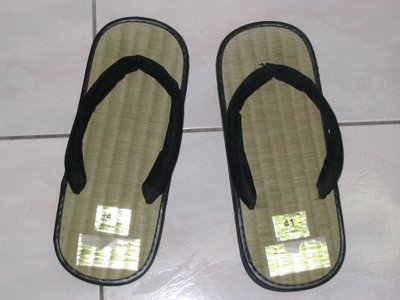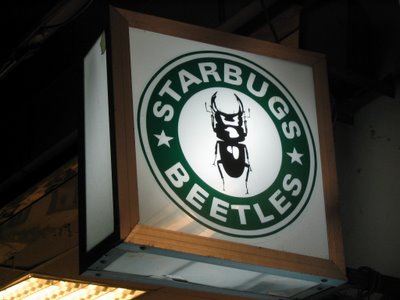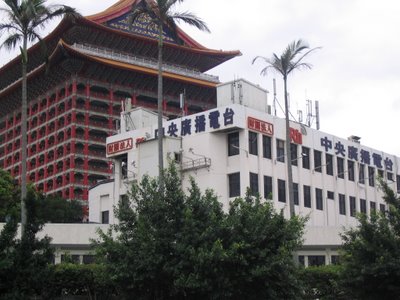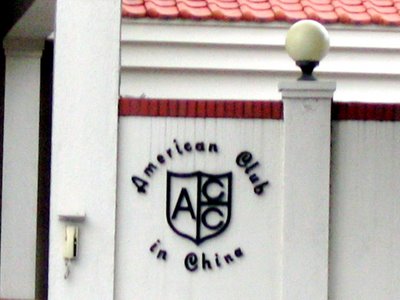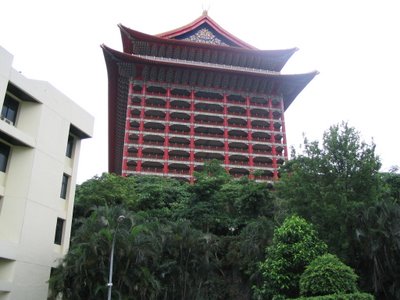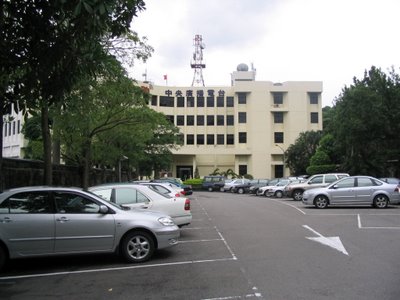Anyone who has read my post on the tea connoisseur linked below knows that encounters with interesting people, places, and events are important to me; it is these encounters that have set my life on a specific course (dare I say destiny?). I can't help it--that is the way I see things. You might see things differently. I am ok with that. We all have our own perspectives and my guess is that some early events in my life sparked this enchantment in my imagination. The gazillion fantasy books I read as a child (and don't forget the bibilical kind) likely also contributed to this wanting to see magic in the world, this desire to catch a glimpse of a heavenly being miraculously descending from the clouds in a flash of multi-colored light. It also directed some of my research interests (Think: Daoism). I would not think for a moment, either, to deny the stamp of my ancestors on the genetic roadmap of my existence.
Well, now that I have had my fun, and written that first paragraph, I will begin the true task of this post: to describe the events of last Friday. First of all, I must explain my misunderstanding. I thought I was supposed to work last Saturday, which would have meant I didn't have to come into work on Friday (I later discovered that it is this Saturday that I am substituting for one of my colleagues).
So, I thought I would do something special for my day off; I would get off the metro at a different stop--Minquan Xilu. Yes, I'll have to expand my notion of "doing something special," but right now I am fascinated by the metro scene (actually I always like train stations and the like).
Anyway, as we were approaching the MQXL stop, an elderly man with white hair walked towards the door. I noticed his Australian-style cowboy hat fell to the floor and so, quickly reached to pick it up. I blurted out: "Xiansheng...(Mr.)!" And handed it to him as the door glided open.
He was grateful and thanked me with a big grin on his face.
Then, I walked off the train; life seemed to move forward; I floated up the escalator and emerged from the station out onto the street.
"Oh!" I said to myself. "I have been here before."
The old chap, Mr. Su, walking about ten feet in front of me, slowly turned around, and as he noticed me, expressed a big smile. He thanked me again and we began talking.
I asked him if he was from Taipei. He said he was but also was a citizen of Australia, where he had moved some 30 years earlier (though he and his wife preferred life in Taiwan).
He then made a fascinating comment: "I was born Japanese and then became Chinese...I'm Taiwanese." When he was born, Taiwan was a Japanese colony. The educational system was Japanese. Authors wrote in Japanese. The official language was Japanese. When he was only 3 years old, his family moved to Shanghai, where they lived until he was 10. They were Japanese citizens living in China. It must have been an interesting time to live in Shanghai. Seven years later he was back in Taiwan. Following the war, when the KMT inherited the island, he became a citizen of the Republic of China.
He then invited me for a cup of coffee at Starbucks since his friend had just called from Keelung saying he would be late for their appointment. Mr. Su had some time to kill so we might as well talk for awhile.
Sitting in Starbucks, looking out of the large windows towards Zhongshan road, one of the major roads in Taipei, at the rage of the racing motorized vehicles and the modern buildings, I asked the obvious question: "How has Taipei changed? What was it like back then?"
"Oh, it was very different. I remember riding my bike in the middle of the road. There were no cars." Of course, much of the city back then was not city; it was farmland.
Then I asked him the next obvious questions, the ones about politics, about President Chen and Chairman Ma (Ma Ying-jeou), about Chiang Kai-shek, and about Taiwan independence.
President Chen is unfortunate. He was a popular mayor and many people, including Mr. Su, felt he did a lot for Taipei, more than Chairman Ma, also Mayor Ma, has done. "But now he has disgraced himself." Of course, Chen hasn't been charged with anything--only his family members. "Taiwan is pitiable!" I told him America has its problems too.
He also said this is a typical problem with DPP and other green politicians: "They do very well on the local level, but they haven't done well as the ruling party.
"Do you think Annette Lu would be better?"
"She is pro-independence." This surprised me because many Taiwanese (those whose families came to Taiwan 100-300 years ago) with whom I talk lean in this direction. "It is too narrow. My family came from there too. It's a bigger picture--the Thousand li Great Wall. That's mine too. I'm greedy. Ha ha ha."
"Do you like Chairman Ma?" "Maybe he's not that bad, but I can't get out of my head the fact that he is KMT. They took advantage of us (qifu women) for 30 years."
"So, he is like Chiang Kai-shek?" "No, definitely not. I hate Chiang Kai-shek!"
"How has Ma been as Taipei mayor?" "He hasn't done too much and isn't as good as Chen Shui-bian was. He's too soft."
"What if Ma became leader of China." I asked this because a few months ago, a friend whose family came to Taiwan from Shandong in the forties ("Mainlanders") asked me what I thought about this possibility. Mr. Su's answer: "I could live with that."
What if Hu Jintao (China's leader) took over Taiwan. "That would be bad."
"Do you remember Shanghai when you were little?" "No, I was too young, but I went back there in the eighties. That is why I moved to Australia; I wanted to go to China and we weren't allowed to go. Things were just starting to open up. People were very simple; they were all wearing those blue outfits." He also said Zhou Enlai was a great man.
"Have you been to Quanzhou?" Quanzhou and Zhengzhou are the two areas in Fujian from where most of the pre-1949 Chinese who came to Taiwan (those who call themselves Taiwanese), other than Hakka, came. "I haven't been there. I should go."
There was much more to our conversation. Afterwards he treated me to lunch.
One thing Mr. Su said over and over again: "Our meeting today is jiyun機運. Do you know jiyun? Ji(會) is opportunity. (命)Yun is fate/destiny." My translation: chance encounter. "My friend just called to say he would be late for our appointment. You said you were originally going somewhere else and at the last minute decided to get off at Minquan Xilu." Then he held his hat up and stated the obvious: "It's all about this hat!"







